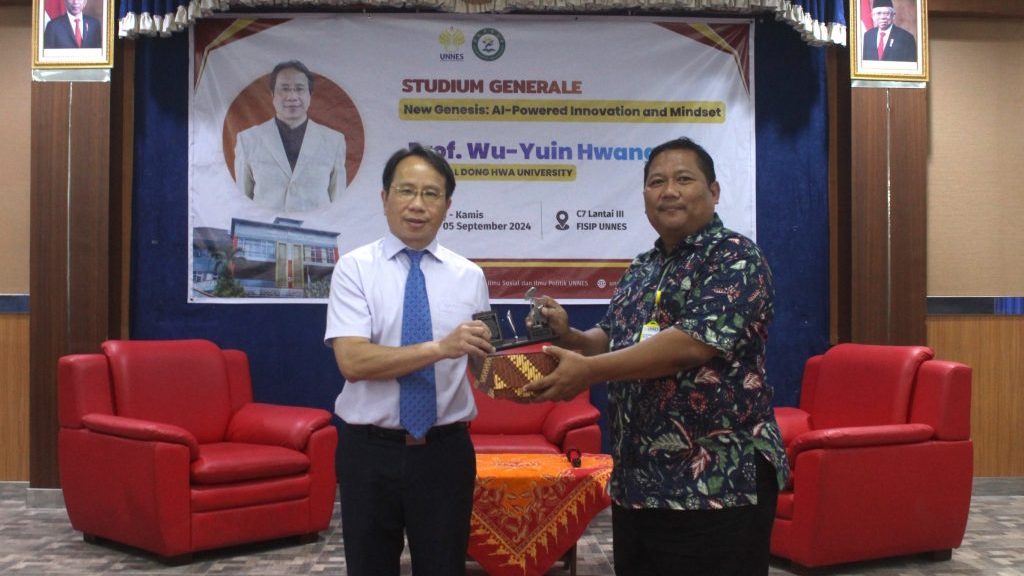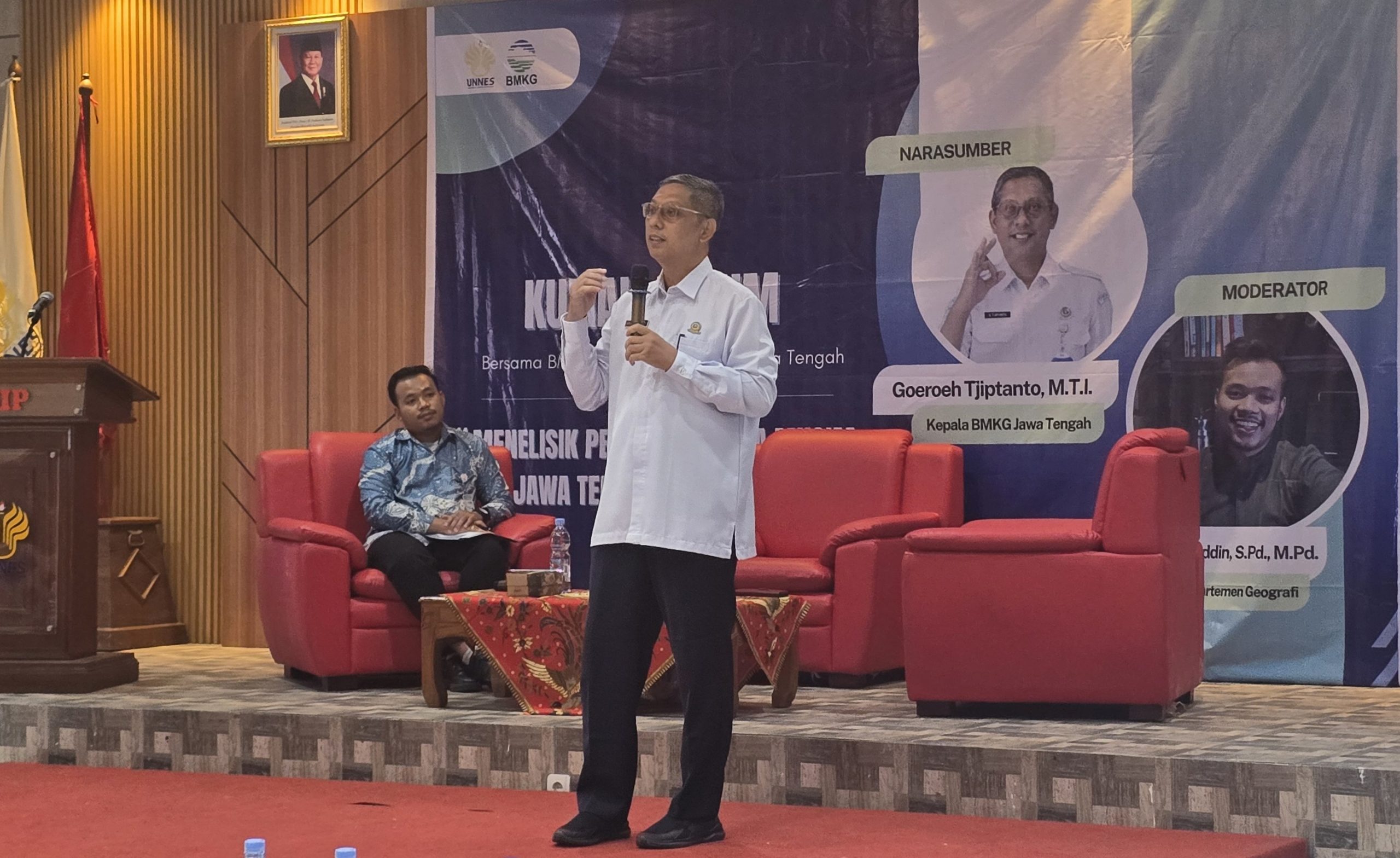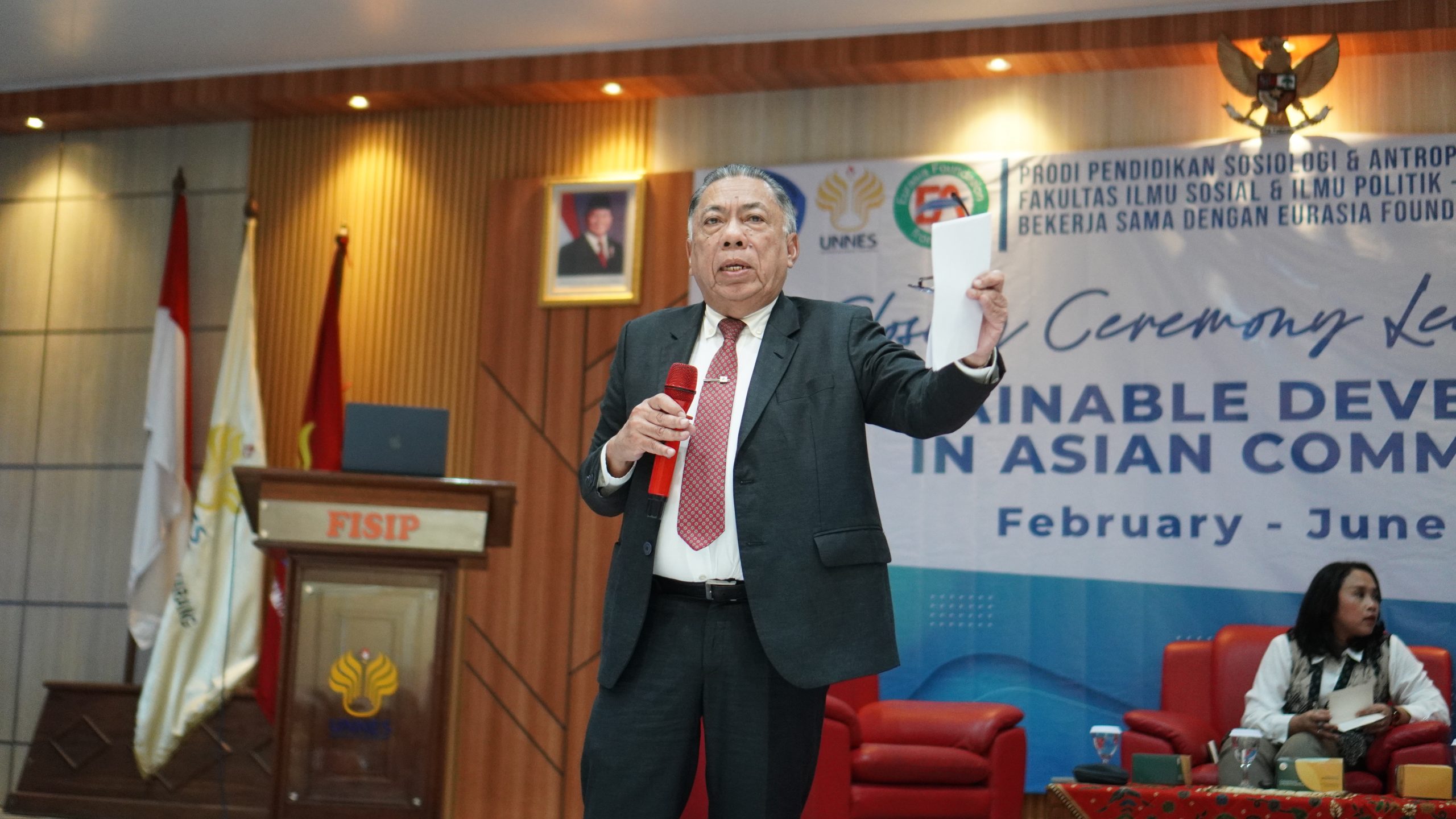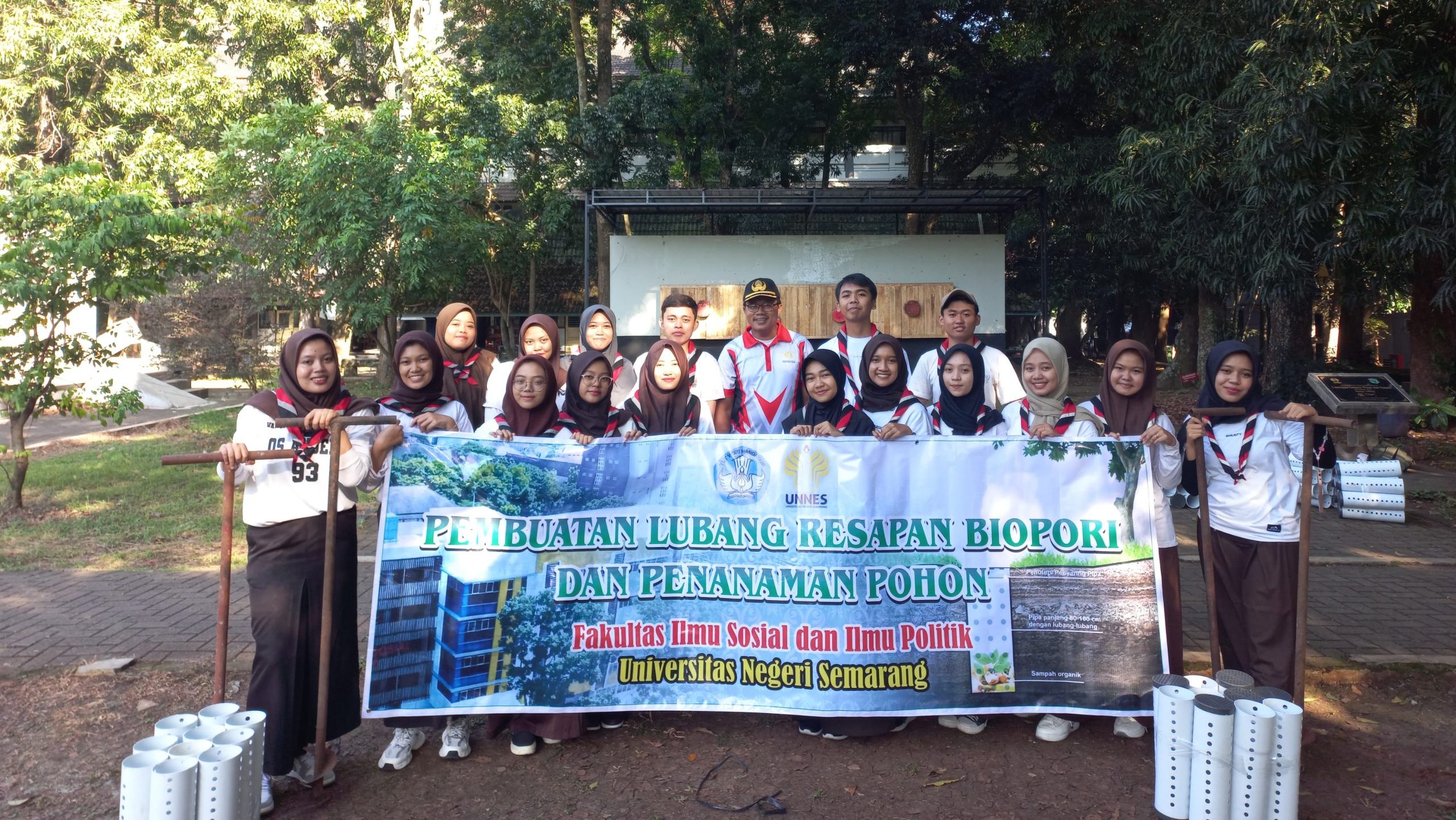Perkembangan teknologi yang pesat saat ini mendorong dunia pendidikan untuk terus menyesuaikan diri dalam pemanfaatan teknologi. Salah satunya adalah penggunaan kecerdasan buatan atau Artificial Intelligence (AI) yang dapat mempermudah proses belajar-mengajar. Namun, saat ini penggunaan AI juga memerlukan tanggung jawab akademis yang seimbang dalam pengelolaannya.
Menanggapi hal ini, Program Studi Pendidikan Kewarganegaraan (PPKn) Fakultas Ilmu Sosial & Ilmu Politik (FISIP) Universitas Negeri Semarang (UNNES) menggelar Stadium General dengan tema AI-Powered Innovation and Mindset pada Rabu, 4 September 2024 bertempat di Gedung FISIP UNNES. Kegiatan ini menghadirkan Prof. Wu Yuin Hwang, Dekan Fakultas Sains dan Teknik dari National Dong Hwa University, Taiwan, sebagai pembicara utama.
Dalam sambutannya, Dekan FISIP UNNES, Dr. Arif Purnomo, S.Pd., S.S., M.Pd., mengucapkan selamat datang kepada Prof. Hwang dan berharap kerjasama ini tidak hanya berhenti pada Stadium General saja, tetapi juga dapat meluas ke bidang penelitian dan pengabdian lintas institusi.
Prof. Hwang dalam pemaparannya menjelaskan perkembangan kecerdasan buatan melalui tiga tahap. Tahap pertama, AI sebagai alat pendukung pembelajaran, seperti penggunaan ChatGPT oleh mahasiswa untuk membantu tugas kuliah. Pada tahap ini, AI hanya menyampaikan informasi dari basis data, sementara pengguna hanya menerima tanpa pemeriksaan lebih lanjut.
Tahap kedua, AI menjadi mitra belajar kolaboratif. Misalnya, AI dapat dilatih untuk mengajarkan bahasa Inggris. Meskipun di awal hasilnya mungkin tidak optimal, seiring waktu, AI akan terus meningkatkan kemampuannya berdasarkan masukan yang diberikan pengguna, sehingga baik AI maupun manusia dapat saling belajar dan beradaptasi.
Tahap terakhir, AI menjadi bagian dari pikiran manusia. Di masa depan, dimungkinkan otak manusia tetap berfungsi meskipun tubuh fisiknya telah tiada, dengan menyimpan pikiran dalam bentuk program atau basis data. Hal ini memungkinkan komunikasi dengan keturunan manusia di masa depan, seolah-olah pemilik pikiran tersebut masih hidup.
Kegiatan ini diharapkan dapat membuka wawasan mahasiswa tentang potensi AI dan bagaimana teknologi ini bisa diintegrasikan secara bertanggung jawab dalam dunia pendidikan.




